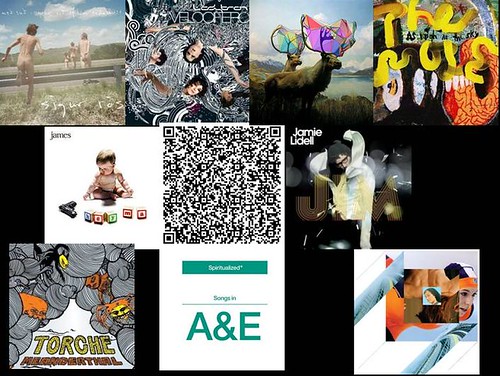OK, on with it:
10. Wold, "Stratification".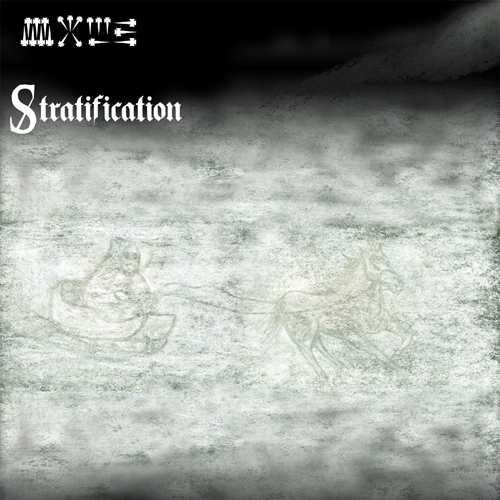
This is as caustic and evil as music gets. I listen to it and always picture the landscape of a thick, dense forest, and the picture in my mind is always a smudgy, grey and white photo. That's what I thought that
before I saw the cover -- honestly.
9. Kardinal Offishall, "Not 4 Sale". 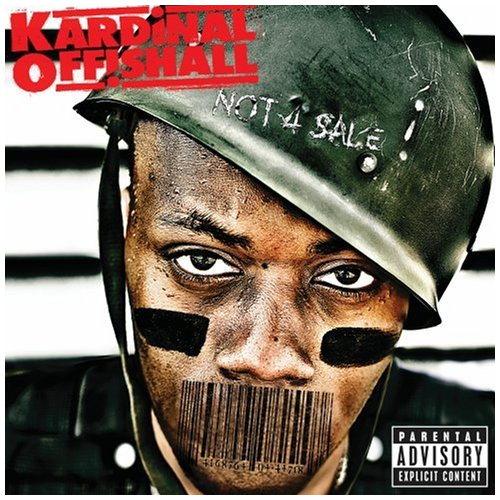
I've been hedging my bets with Kardi up until now, because some of his past work didn't sound, well, big time. The production felt flimsy and not ready for major worldwide radio play, although the track-by-track song quality was usually excellent. Not only was that problem solved and then some on the explosive "Not 4 Sale", but Kardi comes out raging on top form with nearly every track, displaying the urgency of a performer trying to impress on his debut album, not his fourth.
8. Fennesz, "The Black Sea".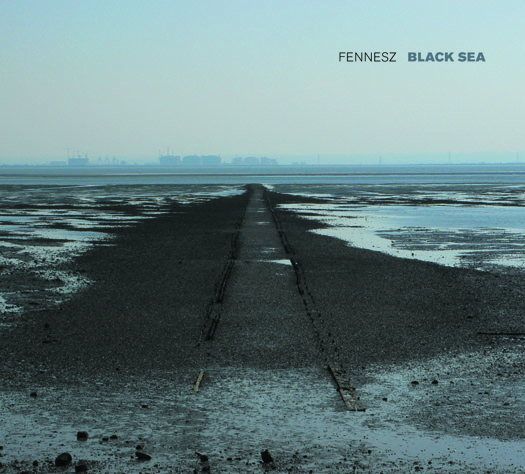
My token ambient album on this year's top ten.
7. Luciano, "Fabric 41". 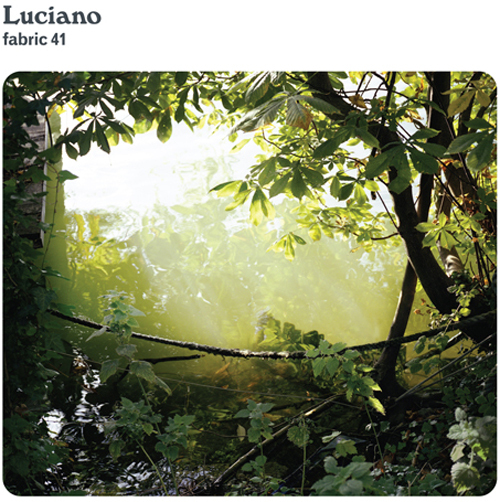
This is a near-perfectly paced mix with not one but several great builds, anthemic tracks punctuating its flow, big house vocals, melodic Orbital-esque payoffs (e.g. "Arabesque"), and plenty else under the sun. One of the only mix albums I can think of with absolutely no dead spots.
6. The Raveonettes, "Lust Lust Lust".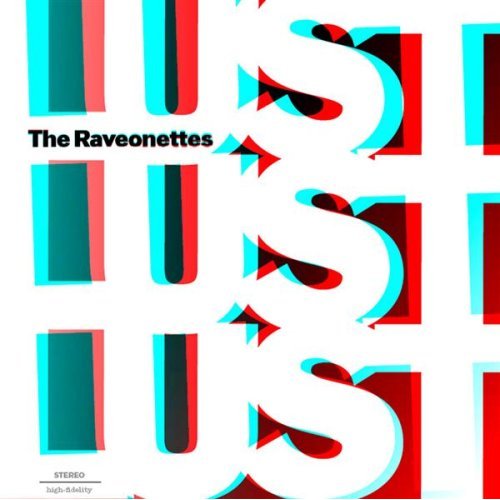
It's been a treat to hear this band improve with every album, morphing from a girl group rip-off (albeit a really good one) into a band making transcendent pop in their own right. They're reaching a level that's close to that of Stereolab in the mid 90's (also Blondie in late 70's), where they've taken a bunch of easily recognizable influences and cultivated them into something that now feels effortless. No longer defined by their many ultracool influences, their ability to process those influences and churn out something bold and refreshing is pretty much unimpeachable these days. And also like Stereolab at their best (although sonically they sound nothing alike), their sighing harmonies and singsong melodies are a recipe for instantly falling in love with a band, and many times when listening to both I found myself asking "why can't/doesn't all music sound just like this?"
5. Petar Dundov, "Escapements".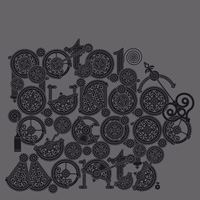
Although it would be accurate to describe this as a throwback to bleepy, melodic 90's techno, that's not the first thing that came to mind when I heard it. My first thought was how similar it was to Death In Vegas' "Satan's Circus" -- I figured I was in for a techno homage to classic krautrock. Others might adore or dismiss its debt to trance, in the way that tracks like "Oasis" gracefully build up to huge climaxes and then rapidly come down from that high. Naturally, all these viewpoints are correct, and shouldn't the best albums always contain a healthy variety of different somethings for different everybodys? It's just rare to be able to say that about a techno album ...
4. Portishead, "Third".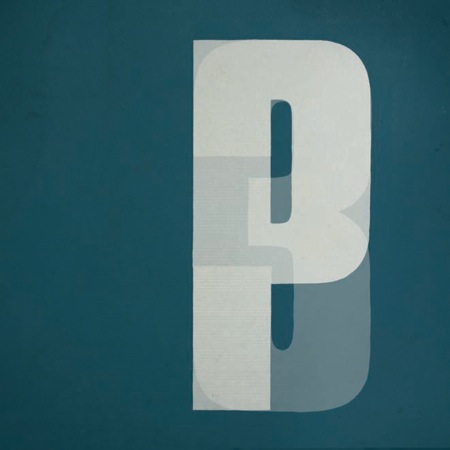
Certain great albums contain a key moment where the whole album seems to kick it into another gear. Perhaps my favourite example of this is Arab Strap's "The Red Thread", or rather the precise moment when Aidan Moffat mumbles "23 years of foreplay lead up to this" about halfway through track five, "The Long Sea". The magic moment on "Third" happens around the middle of the first verse of "We Carry On", my realization of which helped to downgrade my opinion of the entire album in some twisted way because it dawned on me that I longed less to hear the entire album back to front than to hear "We Carry On" on a 50-minute continuous loop.
3. Scarlett Johansson, "Anywhere I Lay My Head".
I'm not going to claim that this album was "misunderstood" because even the dimmest of bulbs can grasp the simple concept of a movie star hooking up with a hot producer to forge wall of sound interpretations of a legendary recording artist. But it
was the year's most easily dismissed album, and possibly the one most underappreciated as well. I'll hedge my bets because it's also the one that feels most likely to make me reneg on a lot of the nice things I said about it in five years time. This music might wear out its welcome once the giddyness of it dies away, leaving only empty gimmickry with some overpowering production and somewhat dull vocals. Sure, it sounds right and all the right names worked on it, and you can say the same about the Paris Hilton album. I'm not reneging on my earlier praise of this album, I'm just saying that we have no idea if the future holds "haha remember when ..." memories, or if Scarlett Johansson will wind up with a Grace Jones-like cult following on the basis of her slick reworkings of some classic songs. But I'll stick my neck out on this point: this is the best thing that anyone in TVOTR will ever be involved with unless the band splits up and its members become full-time producers.
2. No Age, "Nouns". 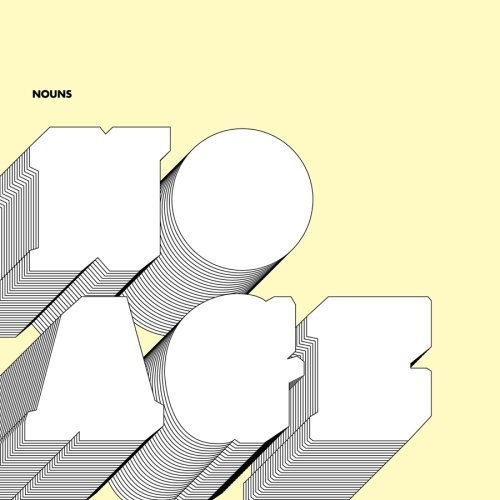
I never aim to self-consciously "include" certain genres on year-end lists (at least, I hope not). Nevertheless, my favourite music over the past (insert any number your like) years contains virtually nothing that is the least bit punk-ish (or LA-ish). But I only just realized this, almost literally just when writing this comment, because at no time during the past several months did it occur to me that it was a personal oddity to be rocking out to this stuff. And no, at no point did I aim to convince myself that No Age were really shoegazers in a punk-y disguise.
1. M83, "Saturdays = Youth".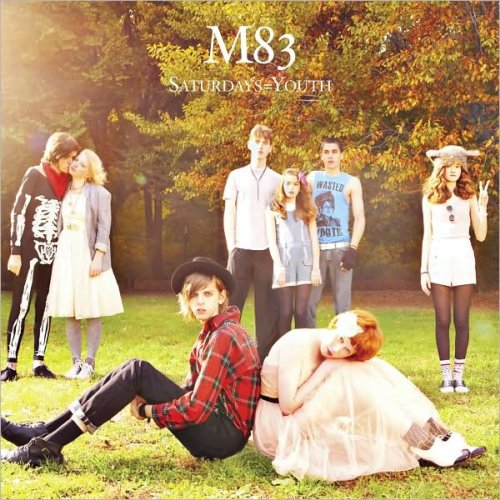
It's like listening to the greatest hits of the O'Jays, in that I don't just become nostalgic for the 70's. That might suggest that I miss the 70's and would like to relive them.. Rather, hearing the O'Jays vision of the 70's is infinitely more pleasant that actually living through the 70's. It presents a rosier picture than the reality ever could have been. It's like browsing though the brightest and most beautiful travel brochure, that shows nothing but sculptures lawns while avoiding glimpses at the cracked pavement and the garbage in the streets. And of course they didn't always sing about happy topics, but even their takes on heavier issues felt inspirational -- they made you want to be part of
their world, not part of the world they were singing about. M83 have done the same for the 80s. You can relive the gated drums, poofy hair, and flashy synths without having to deal with, say, the Cold War and the threat of nuclear annihilation.
